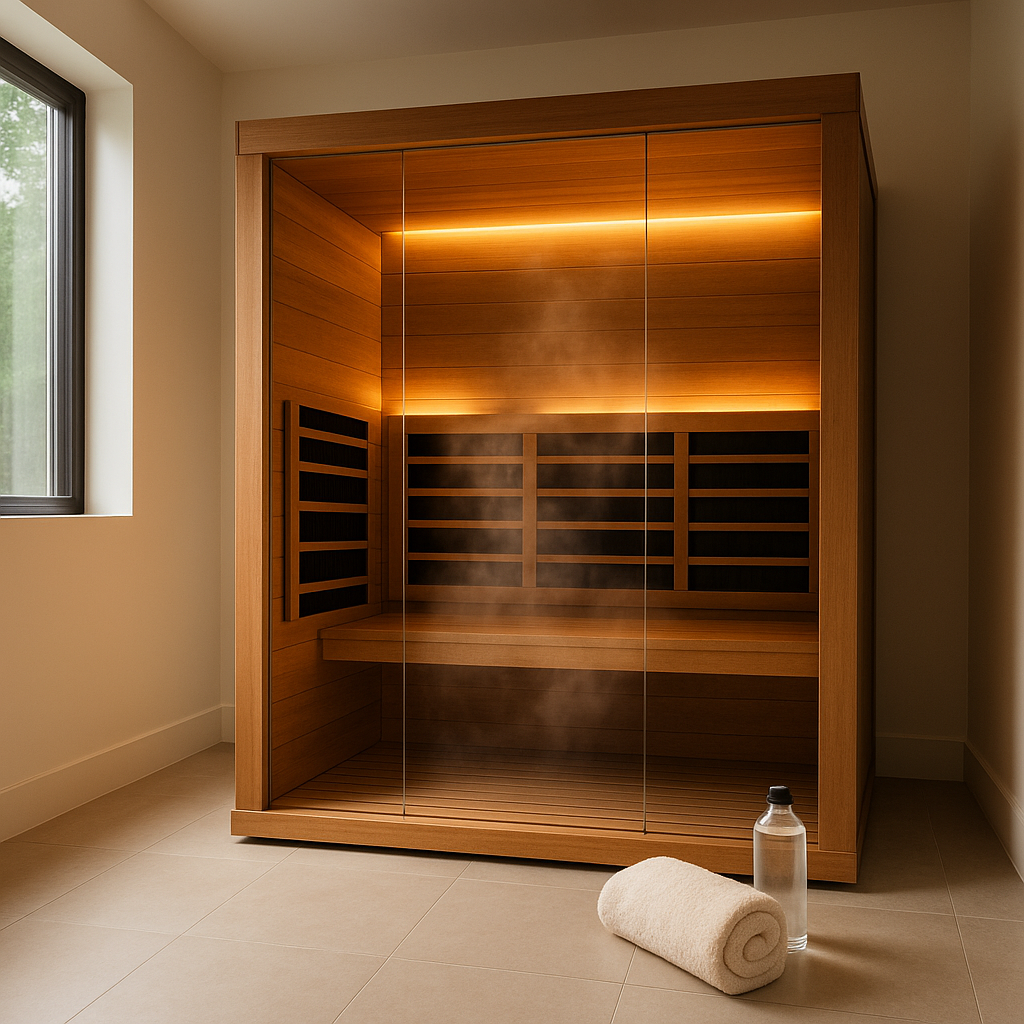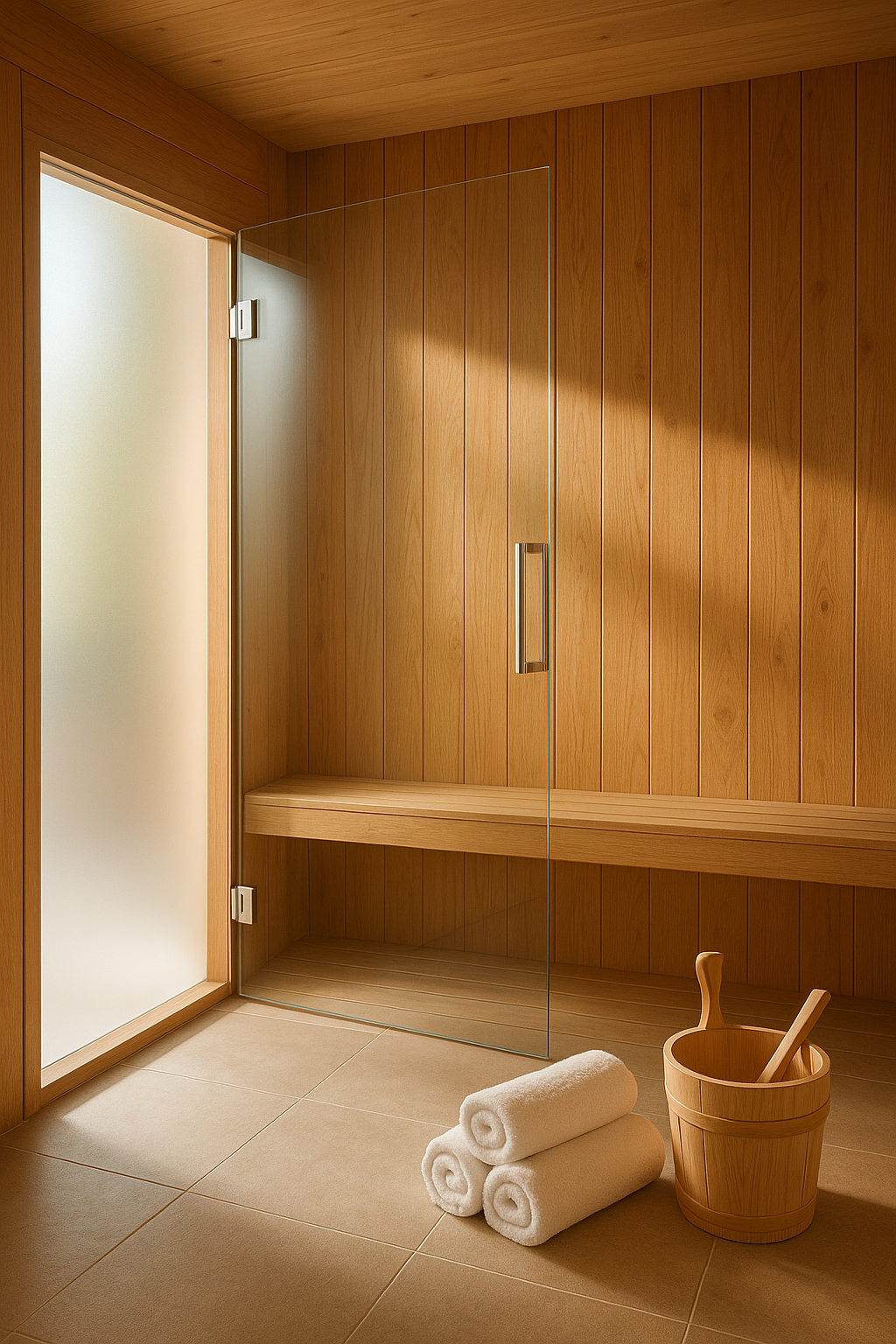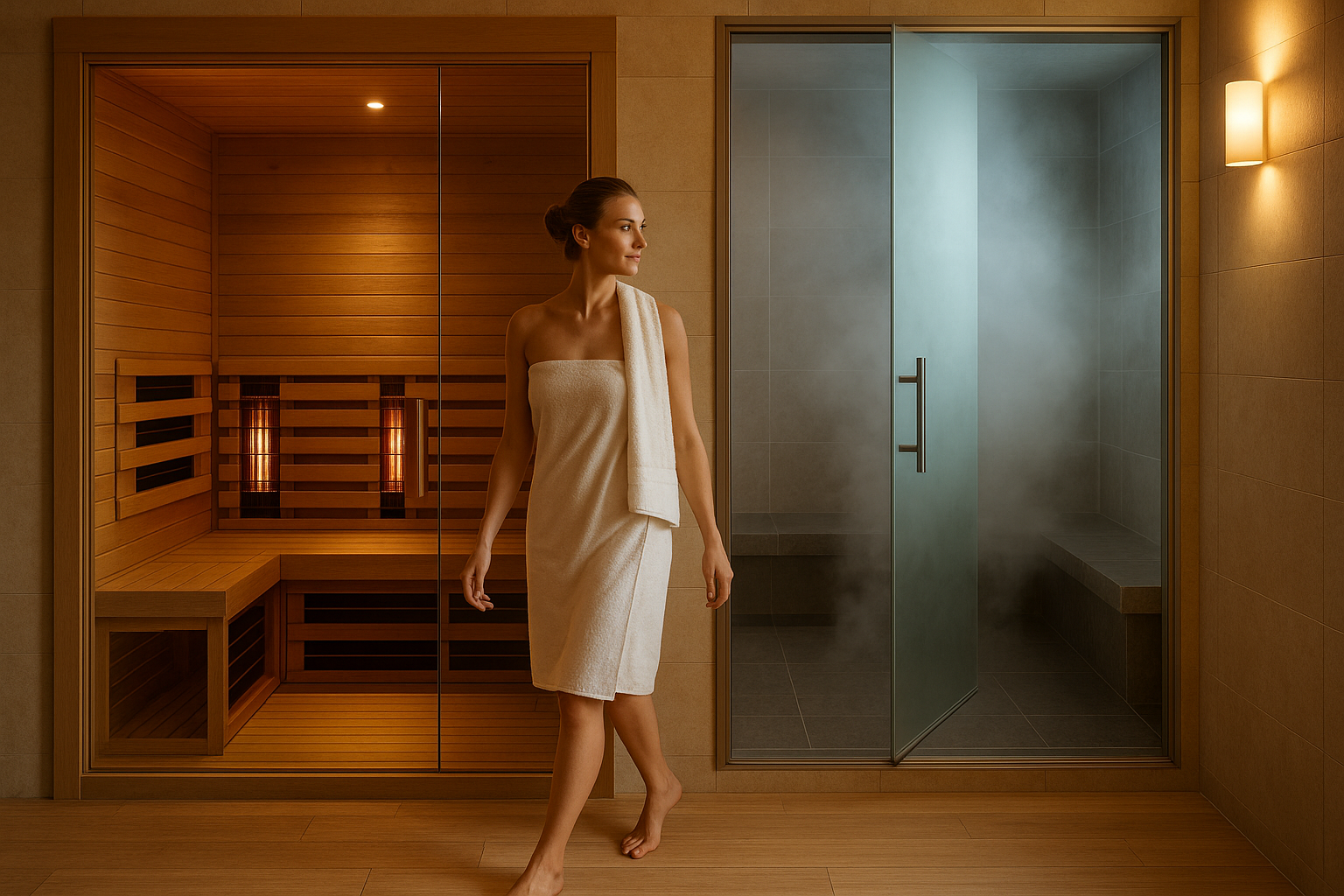Discover the Best Time to Sauna for Energy, Sleep & Detox
Not All Sauna Sessions Are Created Equal
Ever left a sauna feeling amazing one day but drained the next? The difference might come down to timing. Sauna bathing offers a wide range of wellness benefits—but depending on when you step inside, you might enhance or hinder those effects.
In this guide, we’ll explore the best time to sauna based on your health goals, lifestyle, and personal preferences. Whether you're aiming to boost energy, improve sleep, detoxify, or recover faster from workouts, this article will help you time it right—and get more from every drop of sweat.
Why Timing Matters in Sauna Use
Your body’s circadian rhythm, hormone levels, metabolic rate, and physical recovery cycles fluctuate throughout the day. Timing your sauna sessions around these physiological changes can significantly improve the effectiveness of your practice.
By syncing sauna usage with your natural biorhythms, you can:
- Maximize fat oxidation and calorie burn
- Improve muscle recovery and tissue repair
- Boost immune function when it’s most active
- Support better mental performance and sleep cycles
Fun fact: Even sweat composition changes throughout the day, with peak detox potential in the late afternoon when sweat glands are more active.
When Is the Best Time to Sauna?
Let’s break it down by health goal:
For Energy and Focus: Sauna in the Morning
- Stimulates circulation and metabolism
- Enhances mental clarity and alertness
- Ideal alternative to coffee for natural energy
- Combines well with breathwork and light stretching
Sauna sessions in the morning activate your sympathetic nervous system—the “fight or flight” mode responsible for energy and drive. As blood vessels expand and oxygen circulation increases, many users report elevated focus that lasts through the workday.
Bonus Tip: Pair your morning session with eucalyptus essential oil, which helps open airways and clear mental fog.
For Muscle Recovery: Sauna Post-Workout
- Increases blood flow to sore muscles
- Reduces inflammation and lactic acid buildup
- Enhances flexibility and joint mobility
- Pairs well with cold plunges or compression gear
According to a 2020 meta-review in Frontiers in Physiology, sauna bathing after intense training aids in muscle repair, mitochondrial regeneration, and reduced perceived fatigue. Incorporating heat therapy post-exercise is now common in elite sports programs and physical therapy clinics.
Looking to speed up recovery and reduce soreness? Explore our Full-Spectrum Saunas Collection — perfect for post-training heat therapy at home.
For Better Sleep: Sauna in the Evening
- Supports melatonin production
- Helps lower evening cortisol levels
- Mimics your body's natural cooling process for better sleep
- Eases muscle tension and digital fatigue
Research from the International Journal of Environmental Research and Public Health confirms that evening sauna use leads to significantly deeper sleep cycles, especially slow-wave sleep (the most restorative phase).
Evening Pro Tip: Use a low-light setting in your sauna room and avoid screen exposure 30 minutes after. This trains your nervous system to associate the sauna with rest and release.
For Detoxification: Late Afternoon to Evening
- Enhances sweat gland activity at peak hours
- Mobilizes and eliminates heavy metals through sweat
- Supports liver, kidney, and lymphatic function
- Works well with clean eating and hydration
A 2012 review in Alternative Therapies in Health and Medicine found that toxic elements including BPA, phthalates, lead, mercury, and arsenic were detected in sweat from sauna users—even when blood or urine tests showed none. The takeaway? Regular, timed sauna use is an underutilized detox tool.
Detox Routine Tip: Follow your session with antioxidant-rich fluids like lemon water, green tea, or coconut water to replenish minerals.
Optimize Your Sauna Timing with These Tools
- 🧮 Sauna Calorie Calculator: Discover how many calories you burn during each session.
- ⚡ Energy Calculator: Learn how much electricity your sauna uses and what it’ll cost.
- ❓ Take the Sauna Quiz: Get a personalized recommendation for the best sauna to match your timing, space, and goals.

How Long Should You Sauna for the Best Results?
- Beginners: 10–15 minutes
- Intermediate users: 15–25 minutes
- Advanced users: Up to 30–40 minutes (split into intervals)
Pro Tips:
- Always hydrate before and after
- Start at a lower temp and build tolerance
- Don’t force it—exit immediately if dizzy or lightheaded
Morning vs Evening Sauna Comparison Table
| Time of Day | Pros | Cons |
|---|---|---|
| Morning | Boosts alertness, energizes mind, reduces anxiety | May interfere with morning rush or hydration |
| Post-Workout | Reduces soreness, enhances flexibility | Requires precise timing |
| Evening | Promotes sleep, eases stress | May leave some users groggy |
| Afternoon | Supports detoxification, aligns with sweat cycles | Can be inconvenient on workdays |
Lifestyle Considerations
Consider your daily schedule, health status, and goals before setting a sauna routine.
- Busy professionals may benefit most from early AM saunas that reduce cortisol spikes and boost productivity.
- Parents and caregivers often prefer evening saunas for stress relief and mental decompression.
- Fitness enthusiasts thrive with post-workout sessions that support growth and faster recovery.
Even seasonal shifts can affect your ideal sauna window. Cold, dark winters? Morning sessions are invigorating. Hot summers? Try cooler evening infrared sessions for balance.
Tips to Build a Consistent Sauna Routine
- Hydrate: Drink 16–32 oz of water after each session
- Skip alcohol or heavy meals before sauna use
- Incorporate essential oils based on the time of day
- Use contrast therapy (cold shower or plunge) to activate circulation
- Set your sauna time as a ritual: same hour each day
- Track your progress: use a journal or wellness app
Want help building the perfect sauna lifestyle? Browse our Sauna Quiz to match your schedule and space with the perfect setup.
Expanded FAQs: Best Time to Sauna
Q: What’s the safest time to sauna for beginners?
A: Morning or early evening is safest when you're hydrated, relaxed, and not rushed. Start with 10–15 minutes.
Q: Is it okay to sauna multiple times a day?
A: Yes, but space them out by 4–6 hours and keep each session shorter. Always rehydrate and listen to your body.
Q: What time of day burns the most calories in the sauna?
A: Late afternoon sessions tend to have the highest sweat rate due to peak metabolism, resulting in higher calorie burn.
Q: Should I eat before or after sauna use?
A: Eat light 1–2 hours before. Post-sauna, replenish with electrolyte-rich fluids and a clean meal with protein and healthy fats.
Q: Does sauna timing affect weight loss?
A: Indirectly. Morning sessions may boost metabolism for the day, while evening saunas may improve sleep quality, which regulates hunger hormones.
Q: Are morning saunas bad for blood pressure?
A: Not necessarily. In fact, saunas can help reduce blood pressure over time. However, those with known cardiovascular issues should consult a doctor and avoid sudden temp shifts.
Q: Can I sauna every night?
A: Yes, especially if it helps you unwind and sleep better. Just ensure you're not dehydrated or using excessive heat.
The Best Time to Sauna Is the Time That Aligns With You
There is no universal best time—only the best time for you. Whether you're a morning warrior, a post-lift recoverer, or a nighttime destresser, timing your sauna to align with your body's needs can supercharge your results.
✅ Ready to take your wellness to the next level? Explore our Indoor Saunas and start building your custom sauna lifestyle today.










Leave a comment
This site is protected by hCaptcha and the hCaptcha Privacy Policy and Terms of Service apply.